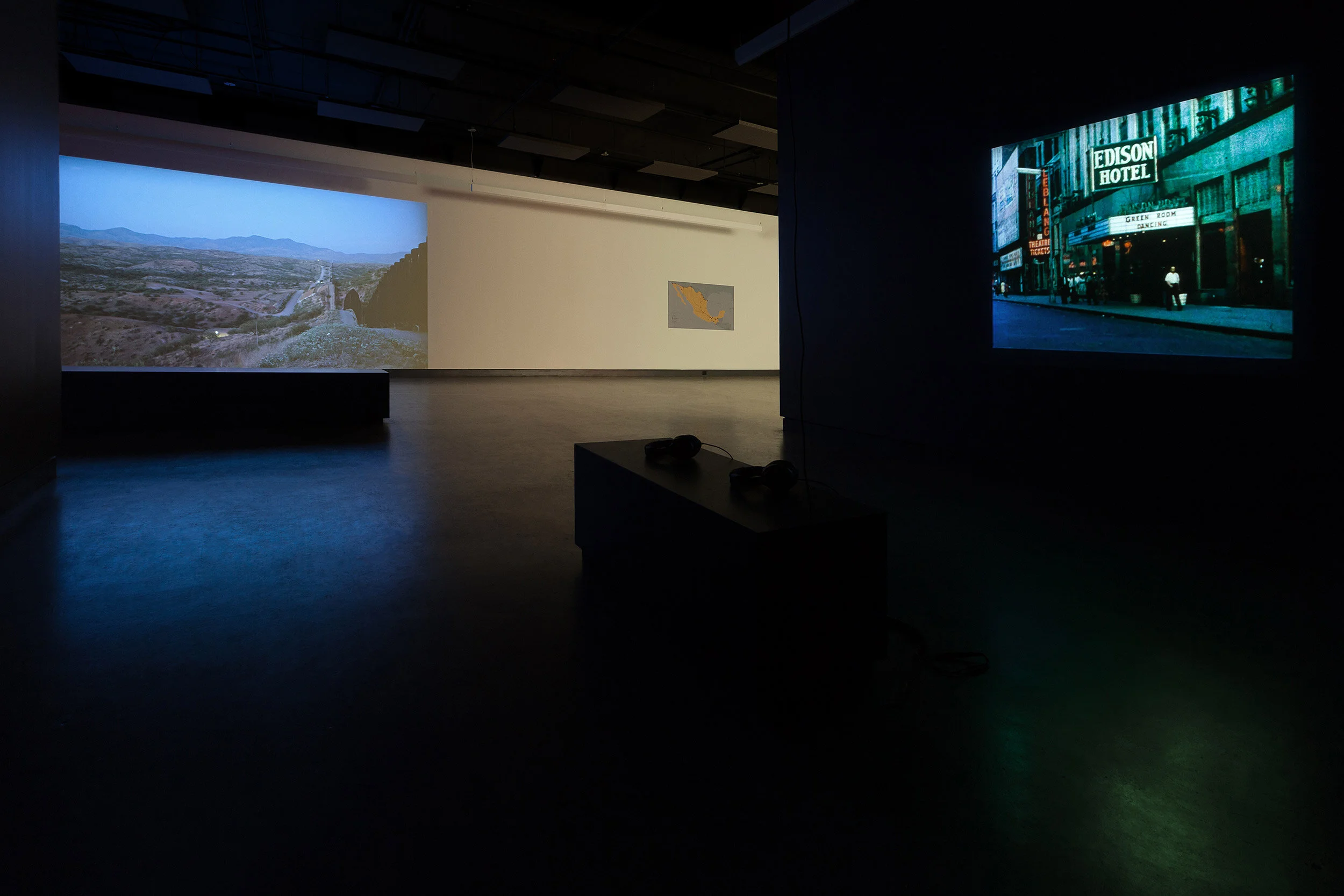Lisl Ponger
Passages
From October 19 to December 16, 2017
Opening on 19 October at 7 pm
Three works placed alongside one another raise issues around migration, territory and borders, and pose a number of questions with respect to the validity of the integration policies of several countries. In the face of the difficulties experienced by countless individuals in reaching a welcoming place and of migration conditions of continuing precariousness, and in light of the increasing number of transit areas and the series of antechambers to be crossed, one is entitled to ask if our societies are delivering a “promised land” and at what cost to those who come in search of it. In a context such as Dazibao, it is impossible to ignore how images inform these phenomena both through their forging of bias towards newcomers and their perpetuation of an ever-increasing gap between the reality of migration and the expectations of displaced individuals. Paradoxically, images and their now greatly unfettered circulation have become a primary tool for a majority of migrants.
The exhibition consists of works whose rhythms and modes of dissemination differ from the media images generally in circulation as a means to acknowledge the stories that often remain muted or are pushed out of the public sphere. Following a number of projects presented by Dazibao that address current social issues, the work of Hubert Caron-Guay, Hillside Projects (Emily Mennerdahl & Jonas Böttern) and Lisl Ponger and invites us to analyse the narrative systems and images that inform our understanding of the world.
Lisl Ponger
The Austrian artist Lisl Ponger, working in Vienna, uses photography, film and installation to examine and explore our conceptions of the “Other” and its too-often archetypal representations. Her work has been exhibited widely in international solo and group exhibitions, as well as in numerous festivals and biennials. Since the 1990s, she has been addressing political questions that remain equally relevant today. Her work takes up issues around colonialism, ethnology and the construction of identity.
For Passages (1996), Lisl Ponger salvaged amateur films devoted to travelling. Initially intended for home use, these touristic images seem at first merry and good-hearted, an album of post-colonial idealism. Slowly, however, the dazzle and exoticism of the images contrast with the discourse. The seemingly light tone of the travel memories takes on another dimension. The sense of escape suggested by travel is contrasted by stories with no conclusion, no respite; individual accounts of refugees fleeing Nazi terror and Jews forced to leave Vienna, voices recounting the torture and imprisonment of people trying to take refuge in Vienna. Through a kind of imaginary cartography of the twentieth-century post-colonial world, Passages foreshadows the displacements of the following century.
― F.C.
This exhibition is presented by Dazibao on the occasion of the RIDM.
Other exhibitions
Dazibao receives financial support from the Conseil des arts et des lettres du Québec, the Canada Council for the Arts, the Conseil des arts de Montréal, the Ministère de la Culture et des Communications and the Ville de Montréal.







